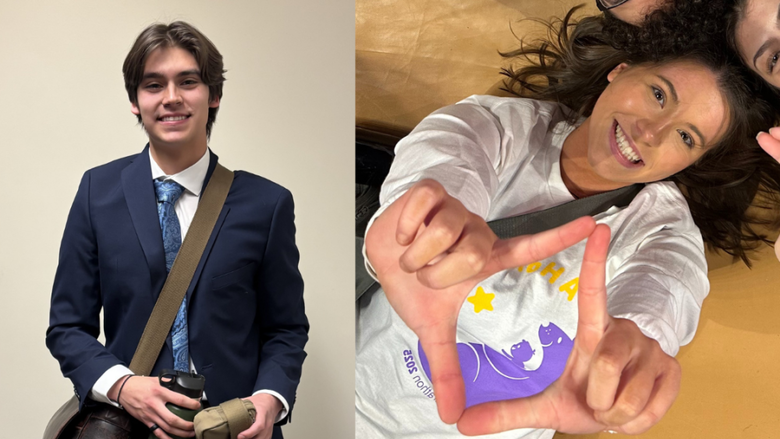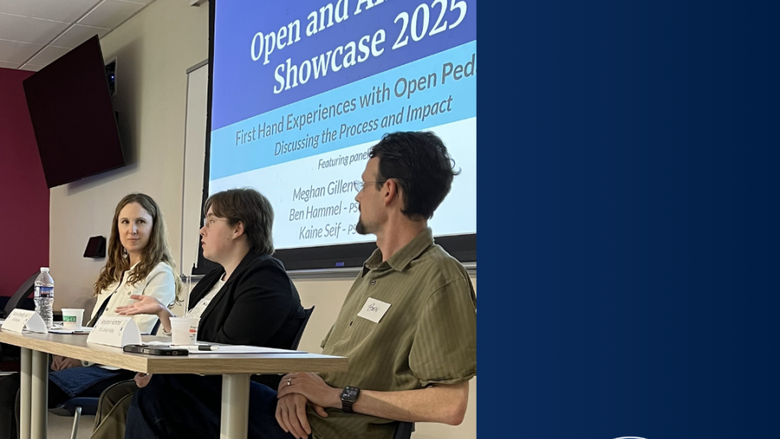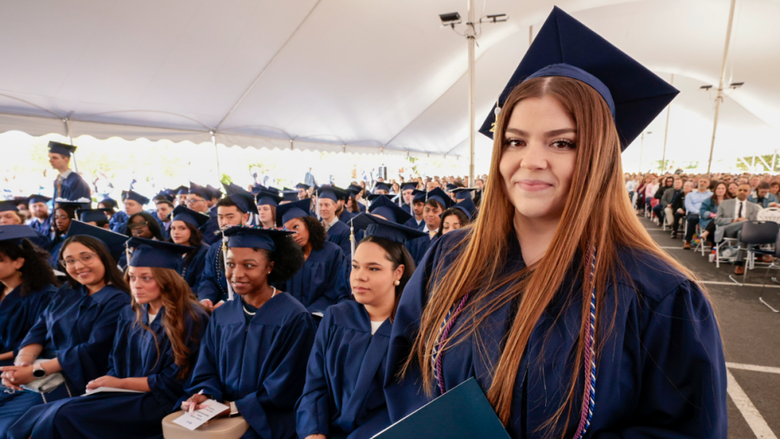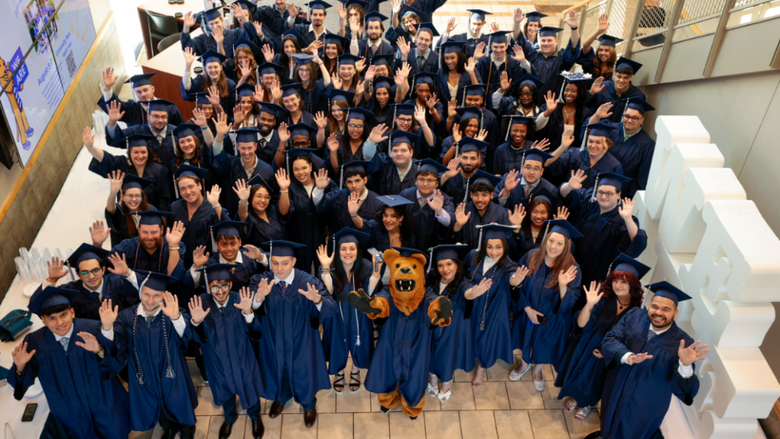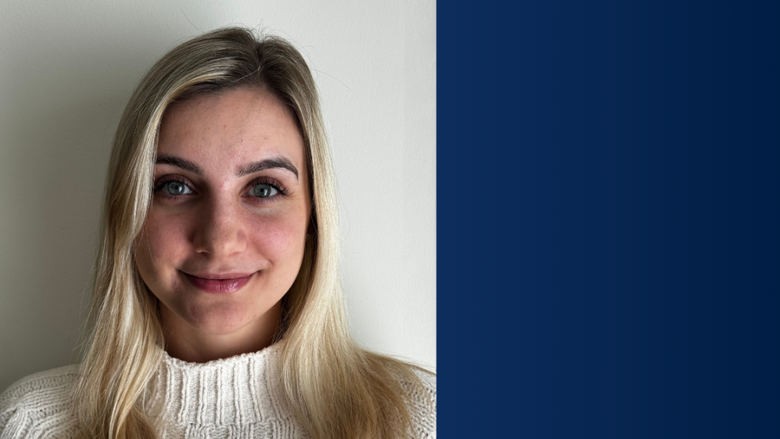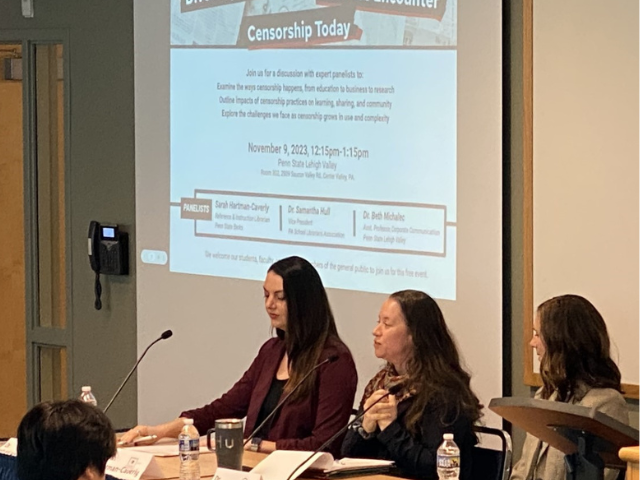
Beth Michalec (left), Sarah Hartman-Caverly (middle) and Samantha Hull (right) discuss the origins, impacts and challenges of censorship that consumers, business, educators and so many more face in society today, in a recent panel discussion held at Penn State Lehigh Valley.
CENTER VALLEY, Pa. — Three experts in the field of communication and information science shared various perspectives around censorship — how it happens, its impact on education, business, and research, and what can be done — during “Defending Diversity of Thought: How We Encounter Censorship Today,” a recent panel discussion held at Penn State Lehigh Valley (PSU-LV).
Aníbal Torres Bernal, director of academic affairs at PSU-LV, gave opening remarks. Sarah Hartman-Caverly, reference and instruction librarian at Penn State Berks; Samantha Hull, vice president, Pennsylvania School Librarians Association, and Beth Michalec, assistant professor, corporate communication at PSU-LV, engaged in a lively and thought-provoking discussion around censorship, particularly as they have encountered it themselves in their respective disciplines.
The event was motivated and co-sponsored by PSU-LV’s library and Office of Academic Affairs.
“We were motivated to do this because censorship is such a big topic in our landscape right now. So many things fall under the umbrella of censorship, whether it’s banning books or cancel culture,” said Jen Jarson, head librarian at PSU-LV, who co-organized the event with Elizabeth Nelson, reference and instruction librarian. “Our media and political climate makes us really aware of freedom of speech issues and censorship issues. Knowing it’s the landscape in which we are all situated and how politicized and divisive it can feel, we wanted to have a more analytical discussion. We wanted to try and promote the idea that discussion around a difficult topic can help us understand each other’s perspectives rather than let it be a more divisive issue.”
Michalec offered a unique perspective on the topic driven by her work within the corporate communication sector.
“I think it’s important that we expand the concept of censorship to our marketplace practice, including social media and content creation,” she said. “With social media platforms and how we engage with their content — we have to keep in mind we’re seeing curated content. It’s our responsibility to seek out multiple views and be open to different views about topics, whether it’s a marketplace brand, a political stance, or an opinion in the public sphere or forum. We can’t just rely on one or two sources that will continually reinforce our messaging and ideals.”
Hull, who primarily works with and for K-12 libraries, said book banning is an alarmingly popular censorship trend, and one “librarians work very hard to avoid, as libraries are meant to serve the entire community. Libraries are meant to have collections that delight, inspire and inform all patrons. It’s one of the reasons a library is a public institution — it’s a third space where anyone, regardless of race, income or education level, et cetera, can come in and learn,” she said.
One way school and public libraries across Pennsylvania are addressing book banning is to practice transparency in how their collections are selected, Hull said.
“It’s a best practice of libraries to have trained professionals who are seeking out materials that are relevant for the collection. Lately, and it’s been sort of a one-sided attempt, there have been efforts made to erase stories of minorities and those whose voices were just starting to be published," Hull said. "It affects society as a whole, but especially our friends in K-12. It can have long-lasting effects on our citizens of tomorrow, as it doesn’t allow them to develop empathy or understanding.”
In her work at the Penn State Berks library, Hartman-Caverly said she has noticed a growing trend in students’ self-censorship. She cited the results of a survey conducted by the Foundation for Individual Rights and Expression whose results showed “more than half the students [surveyed] say they are censoring their views mainly due to concerns about how they will be treated by classmates or on social media,” she said. “Or, they are concerned if they have one point of view and a professor has another, it will reflect poorly on them in the form of a lower grade or other consequence.”
According to Hartman-Caverly, self-censorship can have long-lasting effects on both students and the higher education institutions they attend, whose foundations thrive on differing viewpoints, cultural backgrounds, and life experiences.
“The students perceive there are all of these costs to contrarian, divergent views on sensitive topics. The question becomes, if students are learning this at the undergraduate level and carrying that practice into graduate school and future academics, what implication does it have down the road?" said Hartman-Caverly.
All three panelists said they were honored to be part of the conversation.
“I think we had the best possible problem in that we ran out of time,” Hartman-Caverly said. “Jen and Elizabeth did a really good job of pulling together folks who have complementary but unique perspectives on this issue. It was a wonderful experience.”
Jarson said there is hope that another follow-up panel can be offered in the spring.
“We realize how important it is, as educators, to help prepare our students at all levels to be critical thinkers and engaged citizens in both real life and the digital landscape. Education has an important role,” she said.
